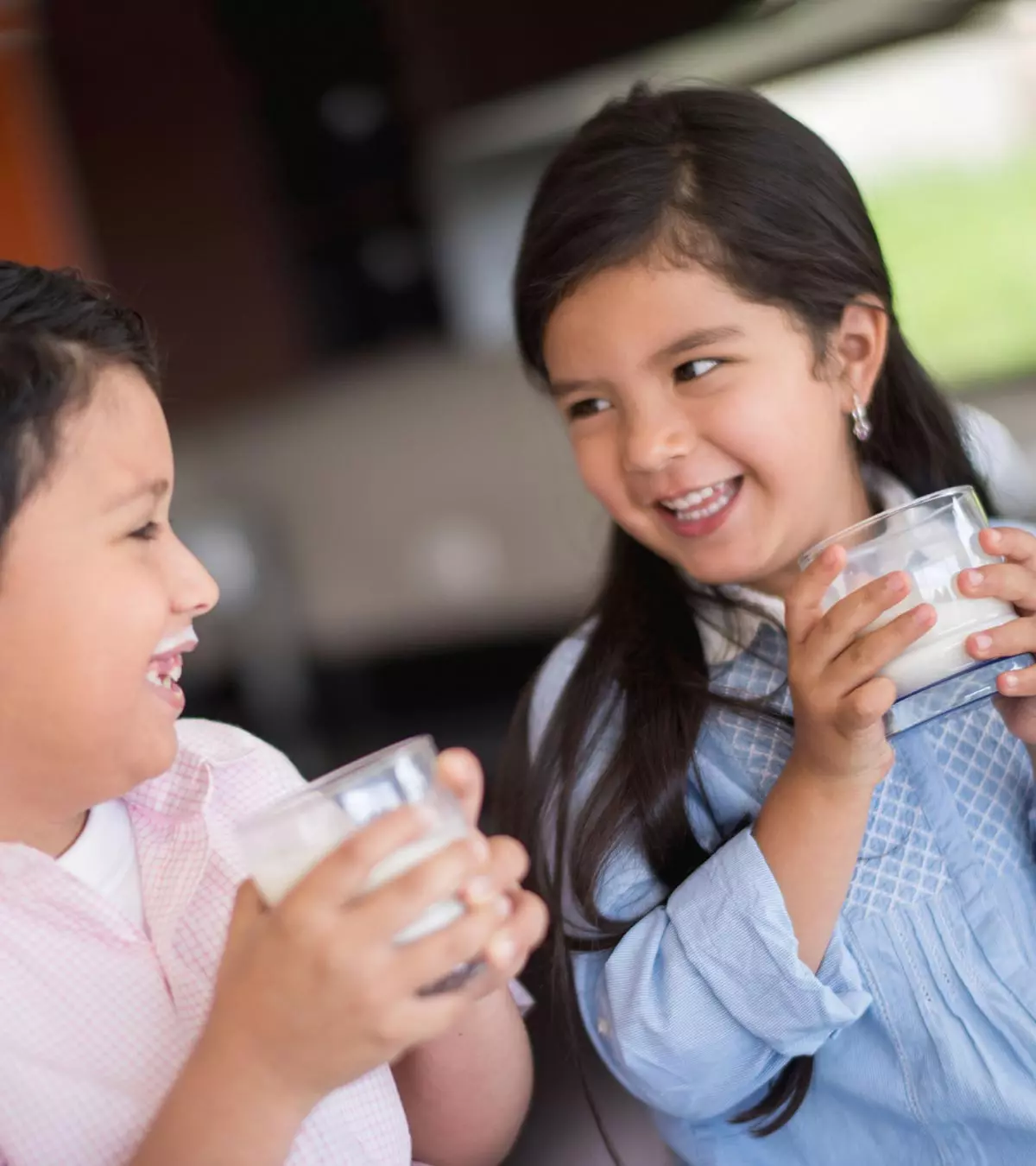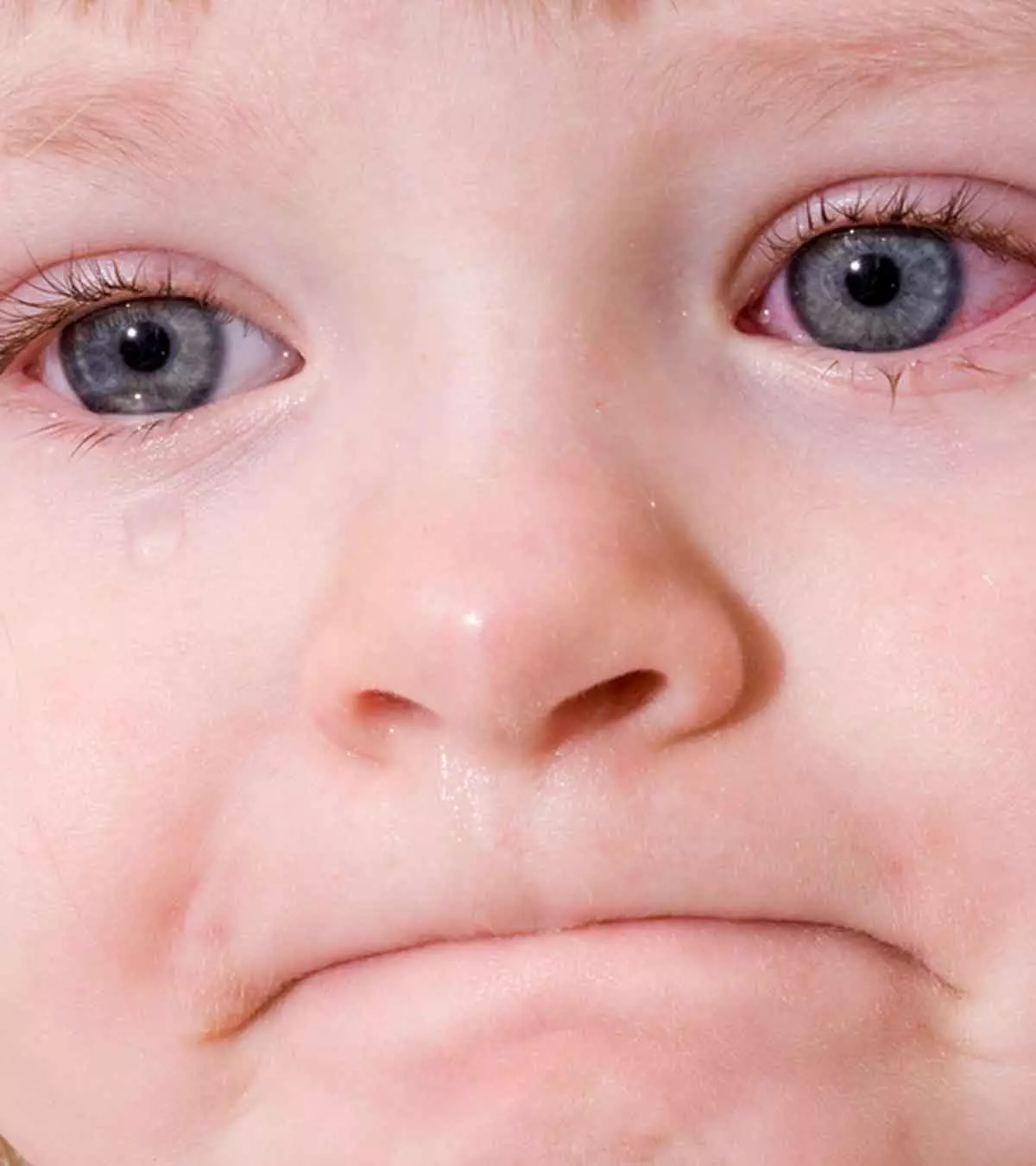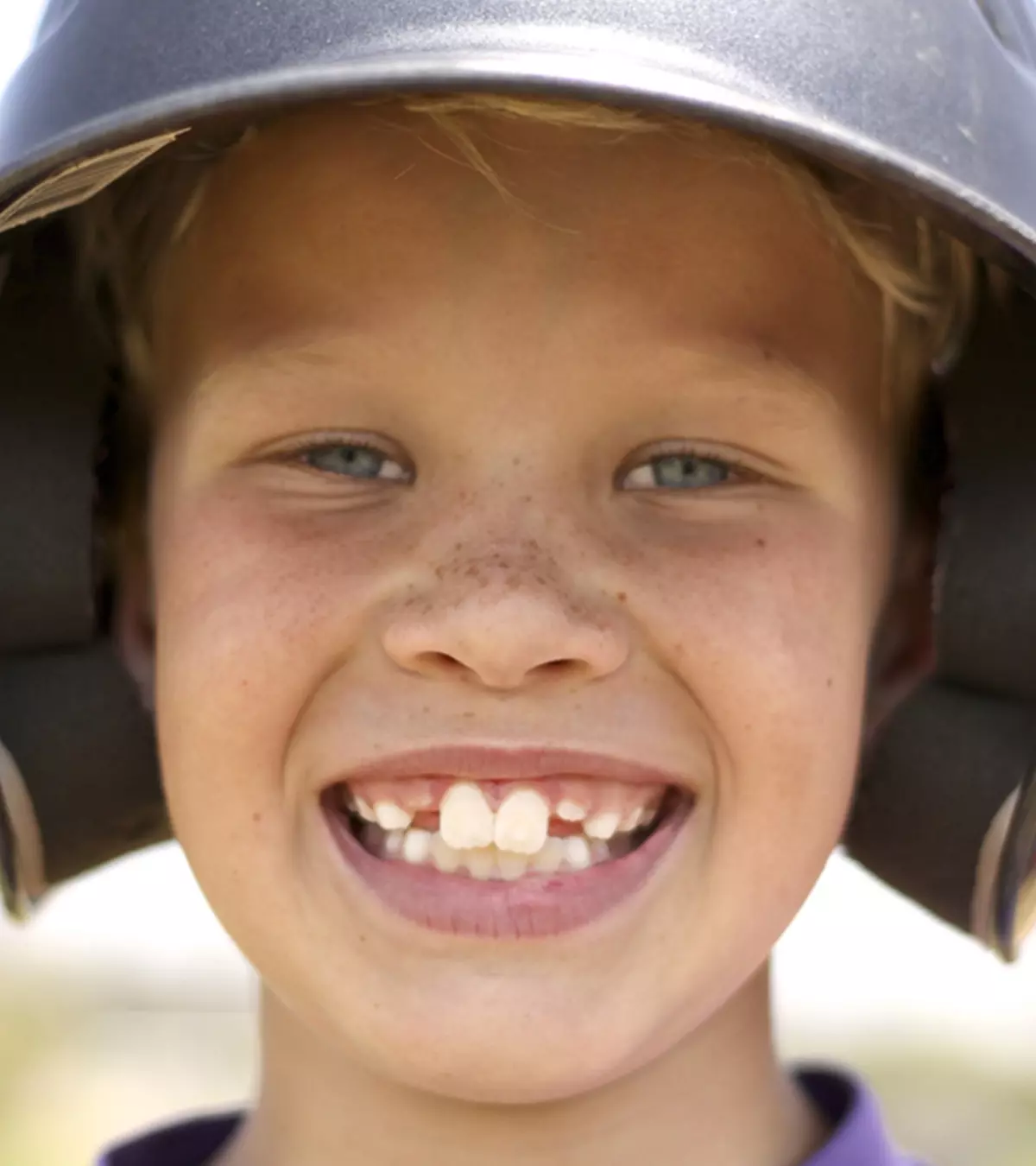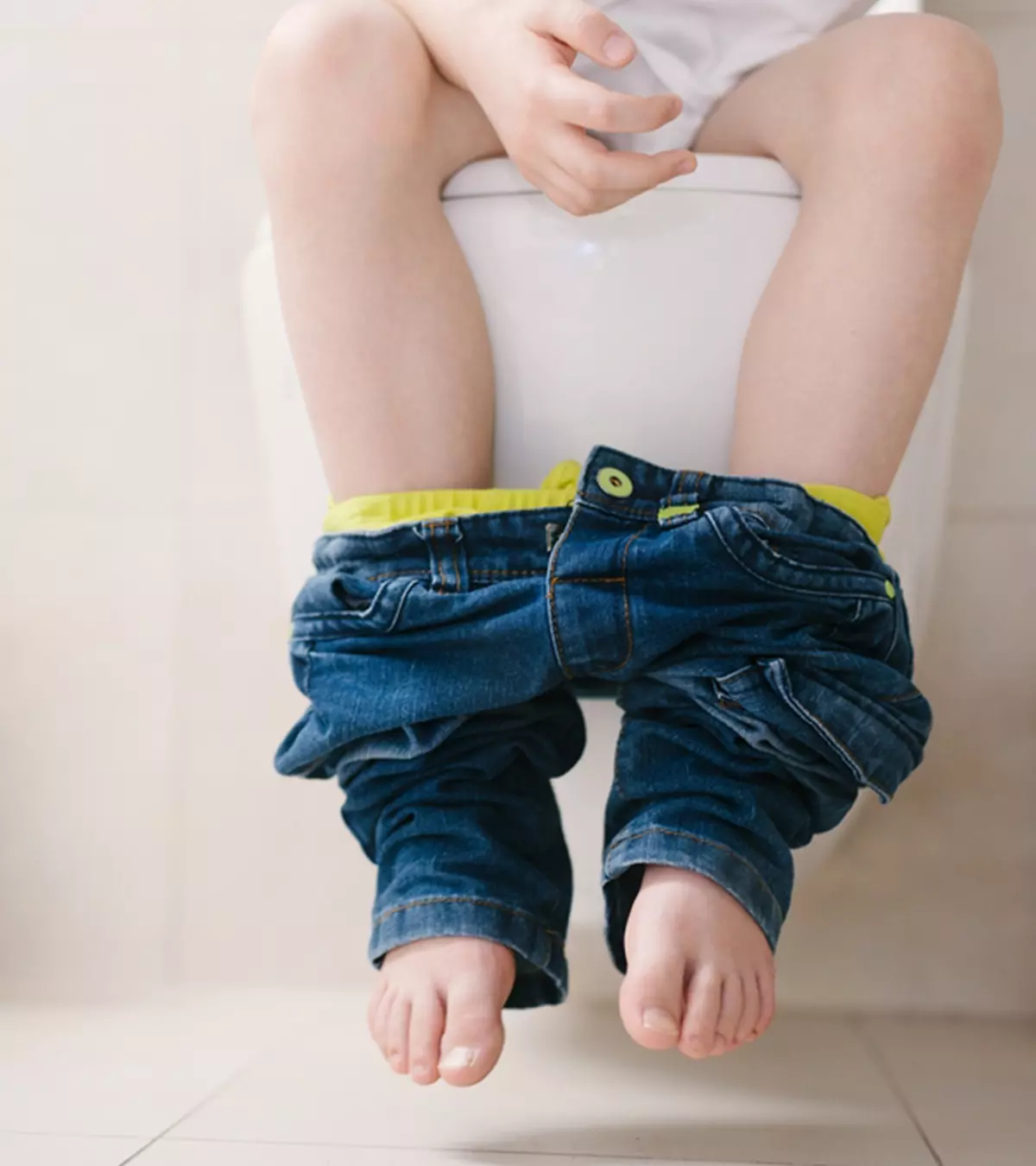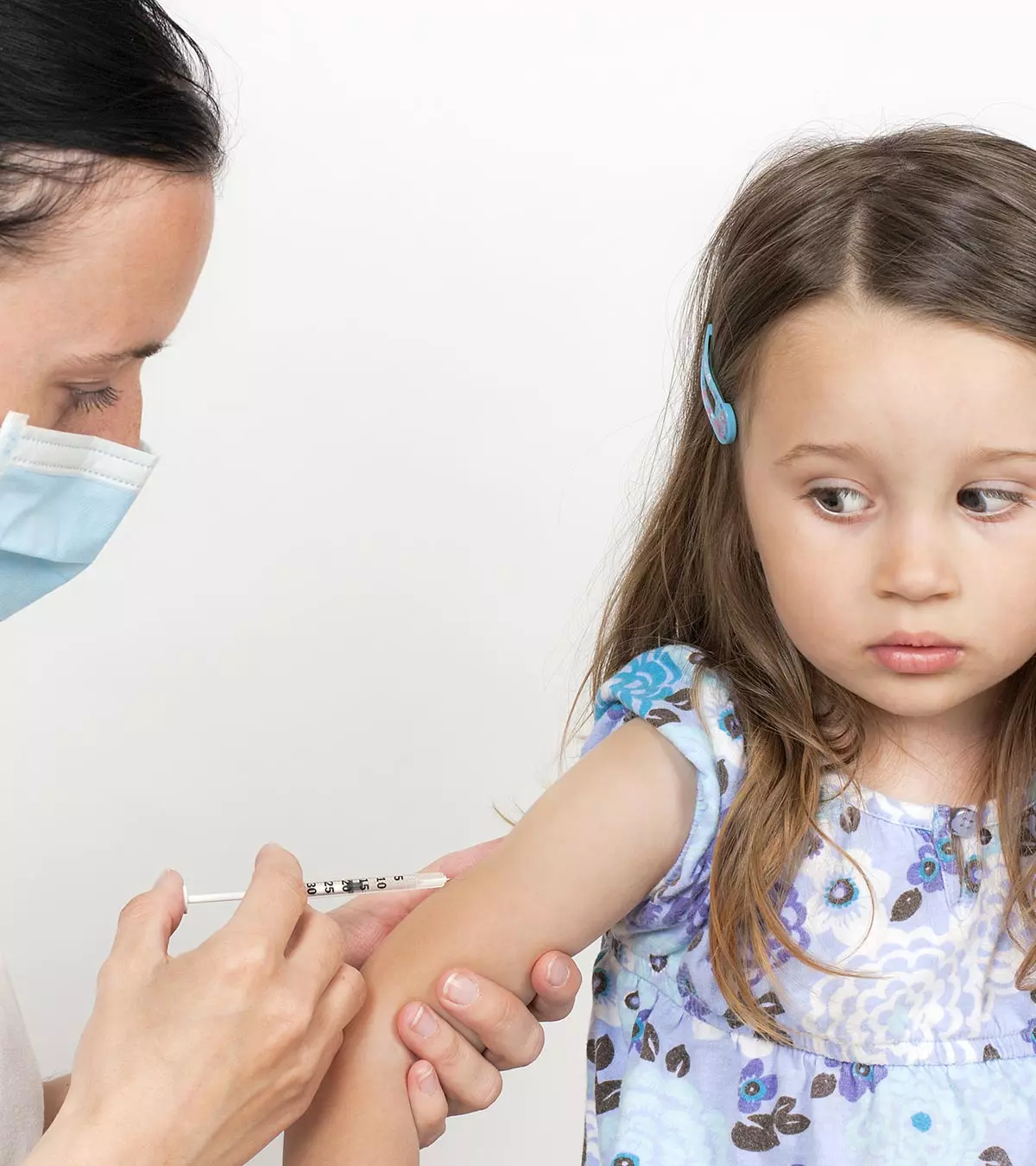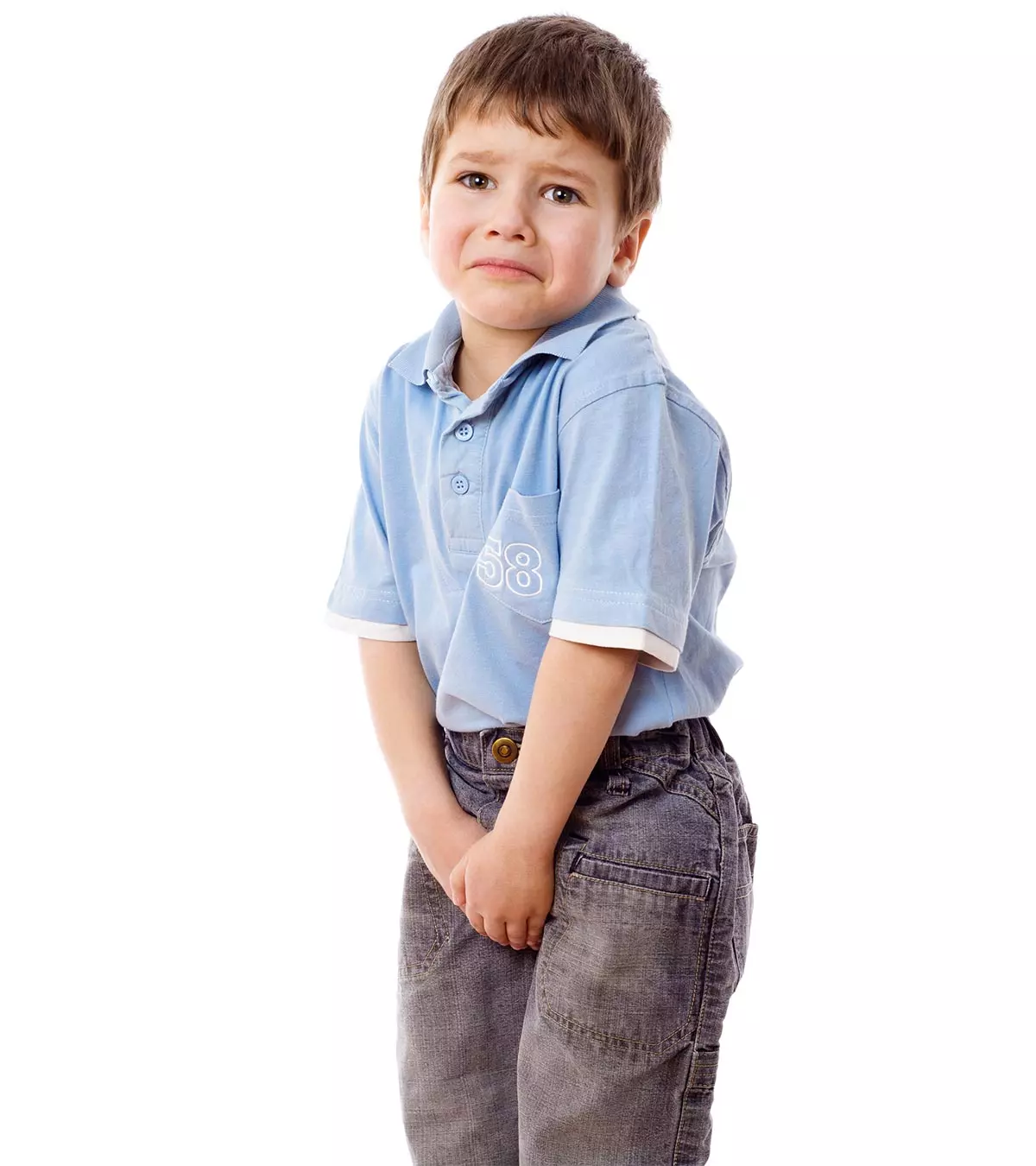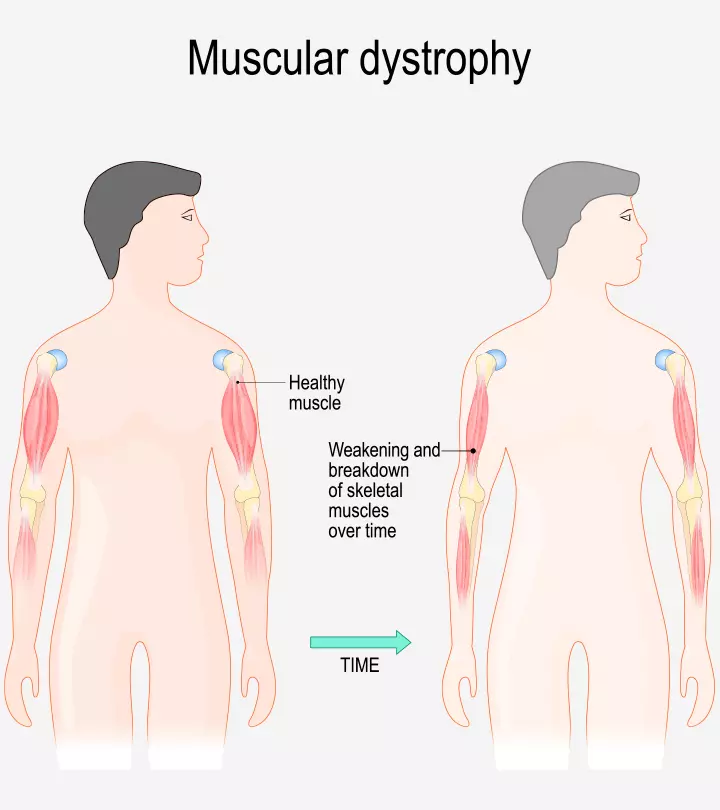Image: ShutterStock
Continuous mental maltreatment of a child that makes them feel afraid, undesired, isolated, unloved, and disregarded is classified as psychological or emotional child abuse (1). These negative feelings can harm a child’s long-term general development, often irreversibly, and damage their self-esteem and confidence.

Calling children names and constantly demeaning, shaming, and threatening them are examples of emotional abuse. It frequently occurs in the context of other forms of abuse, such as physical abuse or neglect. The Centers for Disease Control and Prevention highlights that one in every seven children in the United States has experienced child abuse or neglect. Therefore, looking out for red flags is critical for timely discovery, correction, and prevention.
This post discusses the various indicators and risk factors of emotional abuse in kids as well as successful treatment and preventative strategies.
Key Pointers
- Rejecting or criticizing a child’s efforts or neglecting them are some types of emotional child abuse.
- If you suspect emotional abuse in children, observe their behavior, disinterest in things, and other warning signs.
- Financial insecurity, marital discord, alcoholism, and other factors raise the likelihood of emotional child abuse.
- Raising societal awareness, counseling parents, and reporting such incidents can help prevent emotional abuse in children.
- Emotional abuse can cause cognitive, social, and behavioral issues in children.
Types Of Emotional Abuse
Based on the specific way in which it happens, child abuse can be categorized under the following types (1)(2)(3).
- Rejecting: Not acknowledging a child’s efforts and letting their thoughts and ideas go unheard can make a child feel unwanted or rejected.
- Criticizing: Constantly comparing a child with other children and then belittling or berating their efforts, achievements, and successes can be highly hurtful. Telling them that they aren’t good or worthy enough can break their self-esteem and affect their overall mental health.
Jakob Kerkhove, a blogger, experienced emotional abuse during childhood. Sharing his experience, he writes, “Every day during my childhood, my mother enjoyed criticizing me for everything I did. Literally everything, and usually combined with screaming. She humiliated me by calling me worthless. I got so afraid of the humiliation over time that I stopped talking at home. I got scared to answer questions, even as simple as “How was your day?” I tried to avoid answering and got stressed just by a question being asked (i).”
- Neglecting or ignoring: Children are sensitive beings who need your love, care, and support. Withholding love and denying care, support, and guidance can damage their psycho-emotional growth and development. Neglected children often grow into adults who neglect their children as they lose sensitivity towards others’ needs.
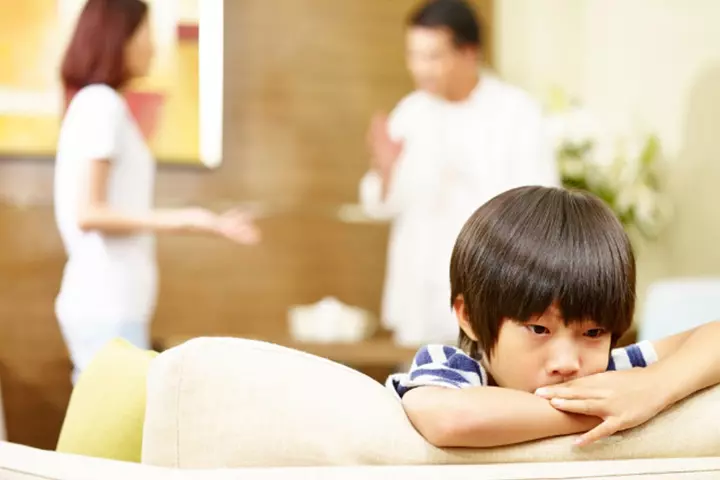
- Isolating: Sometimes, a parent or caregiver could exercise their control by withholding their child from interacting with others, such as peers and friends. This could be done forcefully or via manipulation. Such harsh restrictions can isolate a child and make them feel alone and anxious. Also, over time, such children can struggle with their social skills and may become withdrawn.
- Terrorizing: Verbal abuse, such as calling names, yelling and screaming at them, threatening, or using other forms of intimidation to instill fear, can deeply impact a child’s emotional well-being. The effects of verbal abuse on children can make them feel emotionally vulnerable. An adult’s intent could be to use these tactics to scare a child, but they can have dreadful effects on the child’s tender heart and mind.
- Shaming and bullying: Making fun of a child’s skin color, body size, height, dressing, family, etc., in private or public settings are examples of shaming and bullying. These can make a child feel embarrassed, humiliated, and dejected, affecting their social and emotional health. A teacher making fun of a student’s weakness in class is another example of shaming and bullying.
- Gaslighting: Like any other abuse, emotional abuse also clings on to power and control. Gaslighting is when an abuser makes their victim question their own sanity and reality. Unfortunately, children may not understand this ploy and may start believing that everything is wrong because of them and not the abuser or anyone else, thus falling into the trap of victimization.
- Corrupting: Manipulating a child into lying, engaging them in degrading acts, and involving them in antisocial behavior are all forms of emotional abuse.

Besides these, emotional invalidation, exposing a child to domestic violence, refusing meaningful interaction, and having unreasonable expectations are also types of emotional abuse. Parents are often the first suspects in child abuse cases. However, anyone, including an older sibling, teacher, close relative, or caregiver, can also be the abuser.
 Quick fact
Quick factSigns A Child Is Being Emotionally Abused
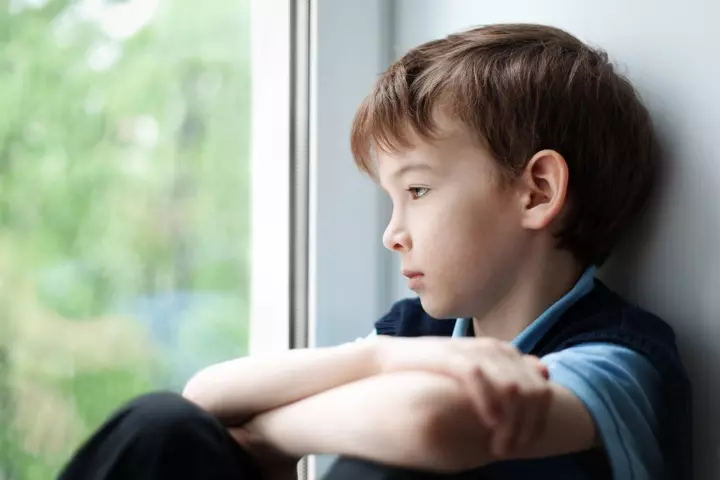
Unlike physical abuse, emotional abuse isn’t readily visible until the child’s behavior raises red flags. The following are some signs that indicate a child is facing emotional abuse (4)(5).
- Avoiding looking at the abuser or staying near the abuser
- Disinterest in things they used to like doing earlier
- Sudden downfall in academic performance
- Emotional problems, such as low self-esteem, depression, and anxiety
- Difficulty sleeping and night terrors
- Apathetic, aloof, and unresponsive behavior
- Social withdrawal or desperate attention-seeking
- Displaying behavior that is either too immature or over-mature for their age
- Increase in aggression
- Empty facial expression and disdained demeanor
- Developmental lags
- Abrupt changes in speech, such as stuttering
- Eating disorders, including undereating or overeating
- Abrupt bedwetting or bed-soiling for no medical reason
- Unexplained physical complaints, such as body ache or headache for no apparent reason
- Destructive thoughts towards self (suicidal thoughts) and others
- Indulgence in destructive and antisocial behavior
- Unusual habits, such as head banging, thumb-sucking, and biting
Possible Reasons For Emotional Abuse Of Children
Most emotional abuse cases occur where the parents themselves have had an emotionally deprived childhood
. Also, not all the perpetrators are parents. Instead, several of them can be close relatives, guardians, teachers, and older siblings.
Here are a few factors that put a person at a high risk of abusing a child (1)(6).
- Extreme life stress due to financial instability, frequent job changes, unemployment, or weakening of one’s economic condition
- Mental health issues, such as depression, substance abuse, post-traumatic stress disorder (PTSD), and mental retardation, may diminish a person’s ability to understand and fulfill other people’s needs. In such cases, the individual may likely turn abusive towards the child unintentionally.
- Family struggles due to marital conflicts or domestic violence, making the home environment hostile and tense

- Alcohol addiction
- Adoptive parenting
- More children, poor housing facilities
- Extreme gaps in parent and child age
- Single, unwanted pregnancy
- Busy, avoidant parenting
- Desire to control the child and their every action
- Resentment and anger towards the child and the parenting responsibilities, as it demands undivided attention and care
- Emotional abuse has been witnessed in cases with special child (physically or mentally), especially when parents lose expectation for improvement and feel burdened for care.
Moreover, raising a specially-abled child alone and living in isolation with no contact with friends and family can increase one’s risk of resorting to abuse.
Note: These risk factors increase the likelihood of a person indulging in emotional abuse. However, the abuser can control their behavior and bring about positive changes with determination and the right help.
 Research finds
Research findsWays To Prevent Emotional Abuse
Emotional abuse in children is characterized by signs of emotional distress caused by power imbalance and intimidation. It often happens within the four walls and takes time to show its effects. This is why its timely identification and prevention are a challenge. Here’s how you can help prevent emotional abuse in children around you (7):
- Educate yourselves and others to identify signs of emotional abuse in children. Doing so is vital to recognize emotional abuse early on, which helps prevent and treat an affected child promptly. You can join a resource group or a community program that spreads awareness about emotional abuse to learn and identify the signs of emotional abuse as well as the traits of an abuser.
- Be a role model and practice positive parenting. Doing so will help other parents watch and understand the importance of a positive home environment. Also, it will demonstrate the right ways to discipline and deal with children in different scenarios. This is crucial as several parents in emotionally abusive relationships yell, scream, or hit their children to discipline them.

- Counsel parents and help them understand their child’s needs. It is crucial to bridge the parent-child expectations. Also, it helps parents know that positive parenting doesn’t mean solely disciplining the child but understanding a child’s needs and acting on them accordingly.
- Support families and communities at risk of emotional abuse due to their vulnerabilities, such as poverty. There are several ways in which you could do that. For instance, you can start a donation program in your community and urge people to donate items that the poor may need. Also, you can arrange and run programs where vulnerable families can receive counseling to overcome their stress. Further, providing financial help is another way to help at-risk families.
- Conduct awareness sessions at the school and community levels to encourage children to speak up against emotional abuse. It is essential as children often think that abuse is a normal part of life. Also, some children may feel that the abuse happening to them is a result of their fault. In such scenarios, awareness sessions help them know what abuse is and how they aren’t responsible. Also, it gives them the courage to stand up and speak.
- Report and speak up whenever you witness emotional child abuse. It is vital to demonstrate to others that abuse isn’t normal and people need to fight against it collectively. It will also help children, especially those being abused, know that there is someone to help them. So, speak up against child emotional abuse whenever you witness it in your family, a friend’s place, or community.
- Report emotional abuse, even if you suspect it and aren’t anywhere near sure. It will ensure that the appropriate authorities step in and investigate the matter. If your suspicion wasn’t accurate, do not feel bad. Remember, staying vigilant and reporting your suspicion is vital for preventing emotional abuse at an early stage.
 Point to ponder
Point to ponderConsequences Of Emotional Abuse
Regardless of whether the abuse was short-lived or chronic, it leaves scars on the child. The severity of the effect depends on the child’s age, duration of abuse, natural resilience, and other abuse or abuses the child had suffered.
Here are the four broad categories that explain the consequences of emotional abuse (1)(8).
- Cognitive problems: Emotional abuse at an early age can impact the cognitive development of a child. Depending on the severity of abuse and the child’s age, abuse can impair their working memory and cognitive flexibility. They can experience problems concentrating and learning, which affects their academic performance. All these factors can degrade a child’s self-esteem and confidence, and they may start thinking of themselves as failures.
- Social and behavioral issues: Chronic emotional abuse alters the way a child behaves socially. At a young age, these children may demand constant attention, and as they grow, they may become desolate and indulge in risky behaviors, such as drug abuse, stealing, and sexual aggression. Since they lose their sensitivity to other’s needs, such children are likely to abuse others emotionally (9).
- Emotional concerns: Emotional abuse affects the emotional stability of a child, making emotional management difficult. Such children either behave too aggressively or are submissive. They may face attachment issues and develop insecurities, leading to trouble maintaining positive relations with peers and friends, sustaining intimate relations in adulthood, and resolving conflicts.
- Mental health difficulties: Chronic psychological abuse can make a child extremely irritable and anxious. Children in such a state can easily slip into social isolation, intensifying negative emotions such as fear, guilt, and shame. The child can also become depressed and develop destructive thoughts towards self and others.
Furthermore, chronic emotional abuse raises the risk of children developing eating disorders. Eating disorders are mental health problems where children experience erratic eating patterns, such as appetite loss or binge eating. In either case, a child’s growth, development, and long-term health are in danger due to overnutrition or undernutrition.
Apart from these, a child can experience developmental lags due to emotional abuse. It is why experts believe that when emotional abuse happens, children, their families, and society at large face the long-term consequences. Therefore, its timely reporting and resolution are imperative to prevent irreparable damages.
How To Report Emotional Abuse
The procedure to report emotional abuse can vary from state to state within a country. For instance, some states in the US mandate law enforcement officers, social workers, school personnel, childcare providers, healthcare workers, and mental health professionals to report child abuse to the concerned authorities (10).
On the other hand, in other states, anyone who notices or suspects emotional child abuse can report it to the local child protective services. After reporting, a social worker or a child protective services officer will meet with the child and the family. Based on their evaluation, they may move the child to foster care to offer them a safe, secure, and nurturing environment.
If you are in the US and know a child abuse victim, call or text the Child help National Child Abuse Hotline 1.800.4.A.CHILD (1.800.422.4453) to speak with a professional. You can also contact your local child protective services office or law enforcement agency here.
Treatment For Emotional Abuse
Once a case of emotional abuse is reported and the child is safe and secure, their treatment begins. Depending on the child’s issues, a team of professionals, including a physician, dentist, counselor, eating disorder specialist, psychiatrist or psychologist, public health nurse, childcare staff, and teacher, would work with the child. If a parent has been the one abusing the child, they will also require mental health treatment.
The treatment involves individual and/or family therapies, counseling sessions, and parenting coaching, which teach the child and their family social skills necessary for healthy conflict resolution. Also, they teach children and their families ways to employ positive coping strategies in difficult situations (6).
How To Help A Child Cope With Emotional Abuse
Based on the duration and severity of emotional abuse, coping with its effects can be challenging for the child and the family. However, you can build your child’s resilience with positive behavior and experiences over time. Here’s how you can do that (11).
- Talk and listen to the child and help them vent out their feelings. Explain to them that the abuse wasn’t their fault and that one can always start life afresh. Doing this can boost the child’s self-esteem and confidence.
- Spend quality time with the child and constantly remind them of their worth. Train them to see their strengths and aim at positive short and long-term goals in life. Show unconditional support and an outpour of love and care to make your child feel valued.
- Teach positive coping skills so that they know how to deal with a problematic situation with positivity. Practicing breathing exercises, meditating, and indulging in engaging activities, such as writing or keeping a diary, are some activities they can try.
- Be a role model and try to handle challenging situations with a calm and positive demeanor. This will motivate your child to do the same to overcome and cope with the issues they face due to abuse.
- Build trust in your child to help them trust others. For that, you need to fulfill your promises and teach the child to do the same. Also, you can take them to social gatherings and help them make new friends and meaningful relationships. Spending some happy time with loved ones will bring happiness and the child will learn that not everyone is an abuser.
- Discuss issues, such as drug abuse and sexually inappropriate behavior, with your child honestly and openly. Ask them to be honest and open up to share whatever they feel. It will allow you to explain the ill effects of indulging in antisocial behavior and activities. At the same time, you can reiterate the necessity of healthy eating and exercise.
- Get professional support for the child and yourself. This is vital as the after-effects of abuse can be extremely difficult to handle. It becomes notoriously challenging for parents or caregivers trying their best to help their child overcome the past.
Building resilience in your child and helping them cope with their trauma take time, so be patient and persistent in your efforts. You will experience ups and downs during the course, but stay positive and handhold your child.
Frequently Asked Questions
1. What is the difference between mental and emotional abuse?
Emotional abuse is a broad term that could involve mental abuse (a type of abuse where a person’s state of thinking is tried to be controlled) (12).
2. What does emotional abuse do to a child’s brain?
Apart from altering a child’s brain (structure and functional attributes of the prefrontal cortex), emotional abuse could impact their resistance to stress and ability to regulate emotions in the longer run (13).
3. Can emotional abuse cause bipolar disorder?
aAs per a few studies, emotional trauma and abuse in early childhood might be a considerable risk factor for the development of mood disorders, such as bipolar disorder (14).
Emotional child abuse is more prevalent than we realize, and it is often neglected because there are no obvious physical indications. Family conflicts, whether financial or emotional, avoidant parenting, adoptive parenting, and stress from life and studies, other factors are some of the causes. So, be on the lookout for any indicators to avoid emotional abuse, and report if you suspect any cases of emotional child abuse. Additionally, practicing positive parenting at home, spreading awareness, and providing love and support to an abused kid can help in their recovery.
Infographic: How To Identify Emotional Abuse In Children?
Raising awareness about emotional abuse in children is crucial as its effect can be as damaging as physical abuse. However, the signs of emotional abuse are not as obvious as physical ones; therefore, one must know how to identify these subtle signs to protect and support children. Read through the infographic below to learn about them.
Some thing wrong with infographic shortcode. please verify shortcode syntaxIllustration: What Is Emotional Child Abuse? Signs Effects & Prevention

Image: Stable Diffusion/MomJunction Design Team
Child abuse and neglect are major problems that impact many children. Learn about the various types, symptoms, treatments, and diagnoses of this severe problem.
Personal Experience: Source
MomJunction articles include first-hand experiences to provide you with better insights through real-life narratives. Here are the sources of personal accounts referenced in this article.
i. Emotional abuse;https://dejakob.medium.com/emotional-abuse-9c996a561d61
References
1. Emotional abuse; NSPCC
2. Emotional Abuse; The University Of Texas At Dallas
3. Emotional abuse; Health Direct
4. Child neglect and emotional abuse; Mount Sinai
5. The Issue of Child Abuse; Child Help
6. Fact Sheet: Emotional Child Abuse; Prevent Child Abuse
7. Preventing Child Emotional Abuse; Prevent Child Abuse
8. Long-Term Consequences of Child Abuse and Neglect; Child Welfare
9. Shelley A. Riggs; Childhood Emotional Abuse and the Attachment System Across the Life Cycle: What Theory and Research Tell Us. Taylor And Francis Online
10. How to Report Child Abuse and Neglect; Child Welfare
11. Parenting Children and Youth Who Have Experienced Abuse or Neglect; Child Welfare
12. Emotional and Psychological Abuse; WomensLaw
13. O. Giotakos; Neurobiology of emotional trauma; NCBI
14. Monica Aas et al., The role of childhood trauma in bipolar disorders; International Journal of Bipolar Disorders
15. Camila Monteiro Fabricio Gama et al. The invisible scars of emotional abuse: a common and highly harmful form of childhood maltreatment; BMC Psychiatry
16. Parenting Knowledge, Attitudes, and Practices; NCBI
17. Consequences of Child Abuse and Neglect; NCBI
Community Experiences
Join the conversation and become a part of our nurturing community! Share your stories, experiences, and insights to connect with fellow parents.
Read full bio of Dr. Neha Mehta
Read full bio of Swati Patwal
Read full bio of Rohit Garoo
Read full bio of Apoorva K







